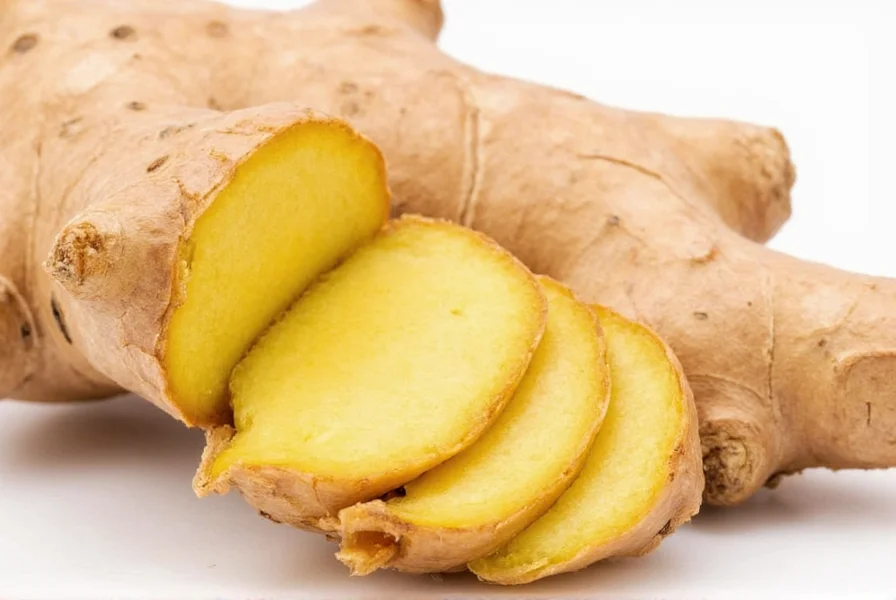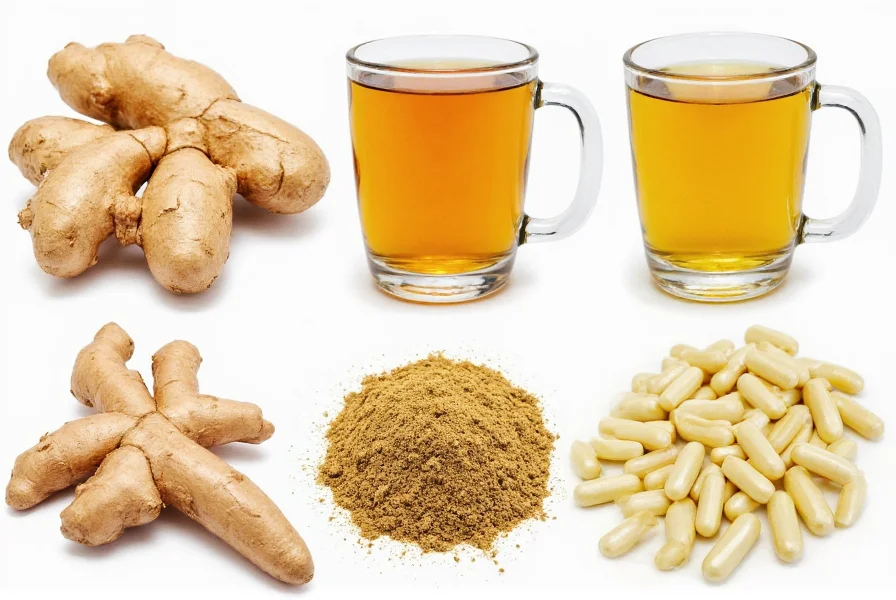Ginger (Zingiber officinale) has been used for centuries in traditional medicine across Asian and Middle Eastern cultures. Modern science now validates many of these historical uses, revealing ginger's impressive therapeutic potential. This versatile root contains bioactive compounds like gingerols and shogaols that drive its medicinal properties.
Scientifically Supported Health Benefits of Ginger
Multiple clinical studies demonstrate ginger's effectiveness for specific health concerns. Unlike many wellness trends lacking evidence, ginger's benefits are well-documented in peer-reviewed research.
Nausea and Digestive Relief
Ginger is particularly effective for is ginger good for nausea scenarios. A comprehensive review published in Nutrition Reviews analyzed 12 clinical trials involving over 1,200 participants. Researchers found ginger significantly reduced nausea and vomiting in:
- Pregnancy-related morning sickness (at 1-1.5g daily)
- Post-operative nausea
- Chemotherapy-induced nausea
- Motion sickness
The mechanism involves ginger's ability to accelerate gastric emptying and block serotonin receptors in the digestive tract.

Inflammation and Pain Reduction
For those asking is ginger good for inflammation, research provides compelling answers. Ginger contains potent anti-inflammatory compounds that inhibit pro-inflammatory cytokines. A study in Arthritis followed 247 osteoarthritis patients taking 500-1,000mg of ginger extract daily. After 12 weeks, participants reported significantly less pain and improved mobility compared to placebo.
Additional research shows ginger may help with:
- Muscle soreness after exercise
- Menstrual pain (dysmenorrhea)
- Joint pain in rheumatoid arthritis
Nutritional Profile of Ginger
One tablespoon (6g) of fresh ginger contains:
| Nutrient | Amount | % Daily Value |
|---|---|---|
| Calories | 4 | 0% |
| Carbohydrates | 1g | 0% |
| Fiber | 0.1g | 1% |
| Vitamin C | 0.5mg | 1% |
| Magnesium | 2mg | 1% |
| Potassium | 8mg | 1% |
While not nutritionally dense in vitamins and minerals, ginger's value comes from its bioactive compounds rather than basic nutrition.
Recommended Dosage and Consumption Methods
Understanding how much ginger should I consume daily is crucial for safety and effectiveness. Research suggests:
- Nausea relief: 1-1.5 grams daily (about 1 teaspoon grated fresh ginger)
- Pain and inflammation: 500-2,000mg of ginger extract daily
- General wellness: 3-4 grams of fresh ginger daily
Various consumption methods affect potency:
- Fresh ginger: Highest in gingerols, ideal for immediate use
- Dried ginger: Contains more shogaols, slightly different benefits
- Ginger tea: Effective for nausea and digestion
- Supplements: Concentrated but quality varies significantly
When considering fresh ginger vs ginger supplements, whole food sources generally provide better absorption and fewer side effects than concentrated extracts.

Potential Side Effects and Precautions
While generally safe, ginger may cause issues for some people. Understanding ginger side effects and precautions helps prevent problems:
- Digestive issues: Heartburn, gas, or mouth irritation at high doses
- Blood thinning: Ginger may enhance blood-thinning medications like warfarin
- Blood sugar: May lower blood sugar, requiring monitoring for diabetics
- Pregnancy: Generally safe in food amounts but consult doctor before medicinal use
People with gallstones should consult doctors before regular ginger consumption, as it may increase bile production.
Medication Interactions to Consider
Those taking certain medications should exercise caution. Research shows ginger may interact with:
- Anticoagulants (blood thinners)
- Diabetes medications
- High blood pressure medications
- Antacids and acid-reducing drugs
If you're taking prescription medications, discuss ginger use with your healthcare provider to avoid potential complications.
Practical Tips for Incorporating Ginger
Maximize ginger's benefits with these evidence-based strategies:
- Add freshly grated ginger to smoothies for morning nausea relief
- Steep sliced ginger in hot water for 10 minutes to make potent tea
- Combine ginger with turmeric for enhanced anti-inflammatory effects
- Store fresh ginger in the freezer for easy grating
- Choose organic ginger when possible to minimize pesticide exposure
Conclusion: Ginger's Role in a Healthy Lifestyle
Ginger offers scientifically validated health benefits when used appropriately. While not a miracle cure, it's a valuable addition to a balanced diet for most people. The key is understanding your individual health needs and using ginger in appropriate amounts for your specific goals. Always prioritize whole food sources over supplements when possible, and consult healthcare professionals if you have underlying health conditions or take medications.











 浙公网安备
33010002000092号
浙公网安备
33010002000092号 浙B2-20120091-4
浙B2-20120091-4